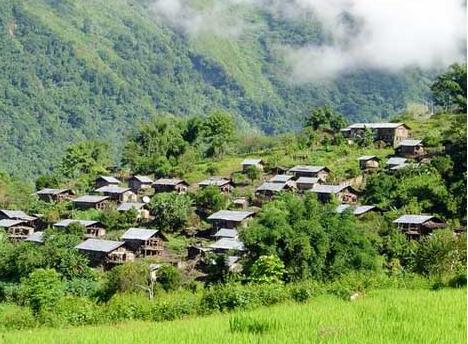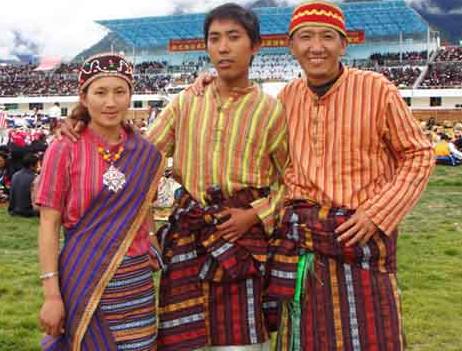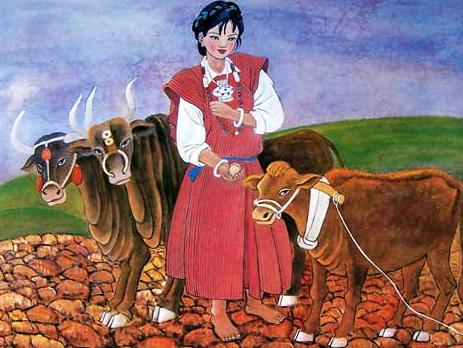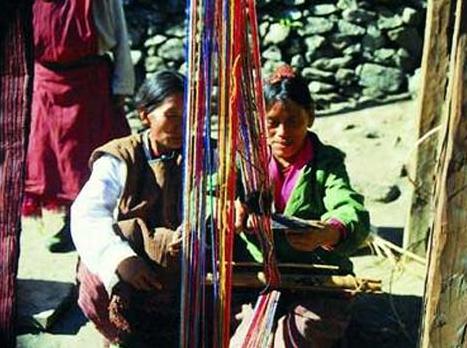The Monba is an ethnic minority with a long history. Their name, 'Monba', pronounced 'Menba' in Chinese, derives from Tibetan and refers to the people living in Menyu in the lower reaches of the Yarlong Tsangpo River. The Monba now occupy Tsona, Metog, and Nyingchi counties in Tibet. Living among the Zang people (Tibetan people), their customs, traditions and life styles appear very similar.

Population and Language:
The fifth national census showed that the Monba has a population of 8,923 in the year 2000. The Monba language is a member of the Tibetan-Burman group of the Sina-Tibetan phylum. There is no written language, instead Tibetan is used.
Belief:
The Monba believe in Lamaism and some still follow traditional religions.

Clothes:
The Monba people like to make clothes with woolen products. Men like to wear a felt crimson gown with a knife at the waist. Women wrap around a piece of sheepskin or ox skin. They also like to wear bracelets, rings and necklaces of red coral, agate and turquoise stones.
Food and Food Custom:
The Menyu Region is abundant in resources and it is home to many rare herbal medicines, animals and trees. The Monba people live mainly on agriculture with some hunting, collecting and stock raising.
The Monba people's diets vary according to the region. The staple foods are rice, buckwheat and corn. Ghee tea and chili are used for each meal.
The Monba people are quite warm hearted. At the table, hosts will be pleased if their guests are drunk as they will take this to mean that their sincerity and warmness are accepted. When the guests leave, hosts will see them out of the village.

The Monba are good at weaving with bamboo strips and vines. Wooden bowls have been their pride for a long time. These wooden dishes are not only suitable holding food but are also delicate artworks, making ideal gifts for visitors.

Customs:
The Monba calendar is the same as that of the Zang, as are their festivals. From the first day to the fifteenth of the first month is the period of celebration for the New Year. They enjoy singing and dancing. Love songs, toasting songs, and operas are very impressive. The sixth Dalai Lama was also well-known for his poetry anthology which was sung for years.
A Monba wedding ceremony is also interesting. The bride's uncle on her mother's side has the privilege of creating difficulties for the bridegroom to test his resolution and sincerity. He will complain about trifles such as 'the wine is hot'; 'the tea is cold', 'the dish is salty', etc. The bridegroom cannot start carousing until he is satisfied. Guests will ask the new couple to drink and will see who finishes first. The one who drinks up first is said to manage the household affairs.
Other Monba customs include: all buildings face east, for they think it auspicious to let the sunshine into their door; there are many forms of burial - water, fire, land and even celestial burials. After hunting, hunters will give a part of their catch to anyone they meet for hunters believe sharing can bring them good luck next time.





